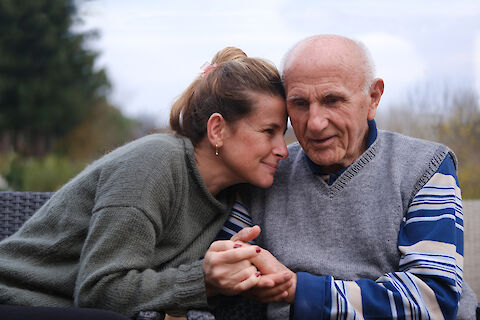
Seasonal Affective Disorder, often known as SAD, is a type of depression that comes and goes with the seasons. Though it impacts people of all ages, it's an often overlooked aspect of senior care that deserves particular attention. Professional and family caregivers are uniquely positioned to notice and address the symptoms of SAD in seniors they care for.
Today we'd like to shed light on this important health issue, delving into how SAD affects seniors, its potential implications for their mental and physical health, and the distinctive challenges it can create for family caregivers. Ultimately, a better understanding of SAD can help caregivers spot its signs and provide the necessary support and care that seniors deserve.
The Impact of SAD on the Overall Health of Seniors
The symptoms of SAD in seniors can have significant effects on their overall health. Physically, seniors with SAD may feel consistently tired, have trouble sleeping, or experience weight changes. Mentally, they may feel down, have difficulty concentrating, or lose interest in activities they once enjoyed. Early detection and treatment are vital to prevent symptoms from worsening and minimize the impact on an older adult’s quality of life.
The Challenges of SAD for Family Caregivers
Family caregivers might have trouble recognizing and managing SAD in seniors. Symptoms can easily be mistaken for the normal aging process or be dismissed as "winter blues". Looking after a loved one with SAD can also take an emotional toll on the caregiver, leading to burnout. It can even strain the caregiver-senior relationship, with both parties feeling helpless or frustrated.
Practical Advice on Helping Seniors Cope with SAD
Addressing SAD in seniors involves a multi-faceted approach. Encouraging lifestyle adjustments such as regular physical activity, a healthy diet, and sufficient sleep can make a positive difference. Just remember to consult the senior’s healthcare provider before starting a new fitness routine.
It's also crucial to make environmental changes. Increasing the amount of natural light in the home can help reduce symptoms. Maintaining social connections and engaging in stimulating activities can also aid in lifting the senior's spirits and reducing feelings of isolation.
Knowing When to Seek Professional Help
If a senior's symptoms of SAD persist despite efforts at home, it may be time to seek professional help. Signs that intervention may be needed include persistent feelings of sadness, significant changes in appetite or weight, difficulty sleeping, or loss of interest in activities.
Get Support From Senior Helpers Tulsa
Addressing SAD in seniors is a critical aspect of ensuring their health and well-being. Understanding the symptoms and impact of SAD and knowing when to seek professional help will put you in a better position to help your senior loved ones live happier, more fulfilling lives in their golden years.
If you or a loved one living in Tulsa, McAlester, Broken Arrow, and Sand Springs can benefit from drop-in companionship and in-home caregiving support any time of the year, Senior Helpers Tulsa can help. Our dedicated team is ready to offer the necessary care and support through compassionate in-home care tailored to the unique needs of the seniors in the community. Contact us to learn more about our services.